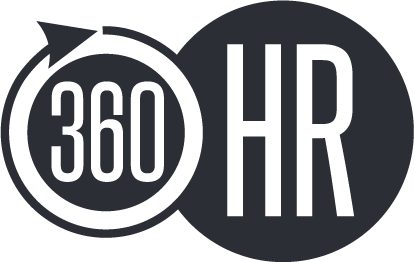We are keen to provide you with all the support you need to perform at your best. Outlined below are a number of techniques that you may find useful.
The two key elements to successful interviewing:
• Preparation
• Enthusiasm!
HOW TO PREPARE FOR AN INTERVIEW
Do your research on the company via their website. Find out more about their products and services. Prepare questions about the business and the role.
Make sure you understand the company culture and dress appropriately. Shorts, t-shirts, tracksuit bottoms, tracksuit tops, slip slops and miniskirts are never acceptable attire in an interview.
Make sure you have had a really good night’s rest before your interview, spend the evening researching the company and preparing your answers for the most popular interview questions. Lay out your clothes for the next day, make sure the alarm is set and if you have problems waking up, arrange a wake-up call with someone you trust.
ON THE DAY OF THE INTERVIEW
Work out how much time it will take you to get to your interview and add 30 minutes to that. You never know what unexpected traffic or parking problems you might experience. Give yourself enough time to get from the parking facility to the offices and get through access control. If you are running late, please phone to forewarn your interviewer.
Do NOT smoke before your interview. And no chewing gum!
Announce your arrival at reception, the reason for your arrival, whom you are seeing, which floor, room number and what time you are due to be seeing them.
For online interviews – ensure your connection is stable and you have a quiet, private space available. Test your setup before the time.
The first 30 seconds of meeting your prospective employer are usually the most important of the entire interview. Be friendly, professional and smile. Most importantly, maintain eye contact. Maintain social distancing and other COVID-19 related protocol.
We all know that the interviewer has read your CV but they want to hear it in your words, from your mouth, and it is a great way to show off your communication skills.
If you are a little nervous or shy, do not beat yourself up. Feel free to tell the interviewer – they have all been there before.
Stay focused, listen, and ask questions. If you do not understand something, let the interviewer know and ask for clarification. Make sure you have prepared questions about the company.
Be interested. Do not slouch. Maintain eye contact. Take notes.
Do NOT bad-mouth a previous employer. If your previous employer put you through a bit of an ordeal, then before the interview, you need to prepare how to describe your reasons for leaving without coming across as two-faced, slandering, bitter.
Do NOT lie. EVER! Not on your CV, not in your interview, not after. Everyone hates dishonesty and the truth always comes out. An experienced interviewer can spot a lie a mile away.
Do NOT ask what the working hours are, what the salary is, how many days leave you will get, what is on the menu for their free lunches or if you have to bring your own coffee to work.
Relax! Remember you are interviewing the company as much as they are interviewing you.
Know and understand the position you have applied for.
Read through the job advert and familiarise yourself with the requirements of the position as well as what is expected of you. If this is not clearly defined then prepare that as a question for when you are given the opportunity to ask questions.
Get in touch if you need help in preparing any questions or answers. Good luck!
In summary: Do’s and Don’ts of interviews
Arrive at least 10 minutes prior to the interview. Know beforehand how long it will take you to get there. If online, ensure you are online a few minutes before the time and test your equipment and connection.
Switch your cell phone off and put it away.
Be confident.
Maintain good eye contact throughout the interview.
Listen very carefully to understand the questions (if not clear, ask for clarity).
Speak clearly, using business language (refrain from using slang).
Answer all the questions honestly and directly without deviating.
Sell your expertise by providing examples of your past experiences and accomplishments.
Do not argue or complain about any issue, particularly not your current department, position or line manager.
If asked why you are interested in the position, do not say because of the grade/salary. Say why the position appeals to you.
If you are asked why you should be employed, do not say you are hard-working, honest and loyal. The company would automatically expect that. Say something like “Based on my skills, knowledge and experience, I can effectively do…” and state the benefit and the value you could add if given the opportunity.
Keep your answers relevant.
Be as brief as possible without omitting important details.
Listen to the question and answer only the question you have been asked.
Be honest!
INTERVIEW QUESTIONS AND HOW TO ANSWER THEM
Here are some common interview questions. The key to remember when responding to interview questions is to be brief and to the point. If you are faced with a difficult question, make sure you stay calm, do not get defensive and take a moment to think about your response before answering.
If asked to tell the interviewer about yourself – identify some of your main attributes. Describe qualifications, career history and range of skills, emphasising those skills relevant to the job on offer.
If asked about recent achievements – select an achievement that is work-related and fairly recent. Identify the skills you used in the achievement
If asked if you are happy with your career to date – the answer must be YES as the question is about confidence and career aspirations. Include a brief explanation as to what it is about your career so far that has made you happy. If you have hit a career plateau, or you feel you are moving too slowly, then you must qualify your answer.
If asked what the most difficult situation that you have had to deal with and how did you tackle it – to show yourself in a positive light and highlight your problem solving skills you should explain how you defined the problem, what the options were, why you selected the one you did and what the outcome was. Always end on a positive note.
If asked what you like about your current role –make sure what you like corresponds to the skills required for the job on offer. Be enthusiastic; describe your job as interesting and diverse but do not overdo it – after all, you are looking to leave.
If asked what you dislike about your current role – be careful with this answer. Do not be too specific as you may draw attention to weaknesses that will leave you open to further problems. One approach is to choose a characteristic of your present company, such as its size or slow decision-making processes. Give your answer with the air of someone who takes problems and frustrations in your stride as part of the job.
If asked what your strengths are – discuss your main strengths. List three or four proficiencies e.g. your ability to learn quickly, determination to succeed, positive attitude, your ability to relate to people and achieve a common goal. You may be asked to give examples of the above so be prepared.
If asked about your greatest weakness – do not say you have none! Use an acknowledged weakness such as a lack of experience (not ability) on your part in an area that is not vital for the job. Alternatively, describe a personal or professional weakness that could also be considered to be a strength and the steps you have taken to combat it. An example would be: “I know my team think I’m too demanding at times.”
If asked why you want to leave your current employer – say how you are looking for a new challenge, more responsibility, experience and a change of environment. Do not be negative in your reasons for leaving. It is rarely appropriate to state salary as your primary motivator.
If asked why you are interested in this particular job – the employer is looking for evidence that the job suits you, fits in with your general aptitudes, coincides with your long-term goals and involves doing things you enjoy. Make sure you have a good understanding of the role and the organisation and describe the attributes of the organisation that interest you most.
Suggested questions to gain insight to the position you are applying for. Ask the following questions, or say the following:
• Who would I report to?
• What will the first projects be that I will be working on?
• What will it take to be successful in this position?
• What training will be provided? (Only if training is essential)
• If I perform well, what will the future career path of this position be?
• What will the next step in the process be?
• Express sincere interest.
Preparing for the structure and style of competency based interviews
Most organisations use a competency based interview methodology.
Competency based interviewing, also known as behavioural interviewing, requires you to draw on past experience and describe specific examples of incidents that demonstrate your competence in a particular area. The most effective way of answering these questions is to use the “STAR” technique:
Situation – briefly describe the background to the situation
Task – specifically describe your responsibility
Action – describe what you did
Result – describe the outcome of your actions
Here is an example answer to a competency-based question that is testing teamwork as a competence:
Question: “Team work is very important in our organisation. What evidence do you have to prove that you are a good team player?”
Answer: “I have a number of examples I could share with you. In one instance, when I was working as a financial analyst at ABC Company, the sales teams were putting together a bid for a large piece of work and the analyst that normally helps them was on leave. I offered to help them and worked late every night for two weeks to ensure they had all the information they needed. They took on my suggestions regarding pricing and also some creative ideas I had on formatting the proposal. As it turned out we won the bid and I was promoted as a result”.
Good luck!


